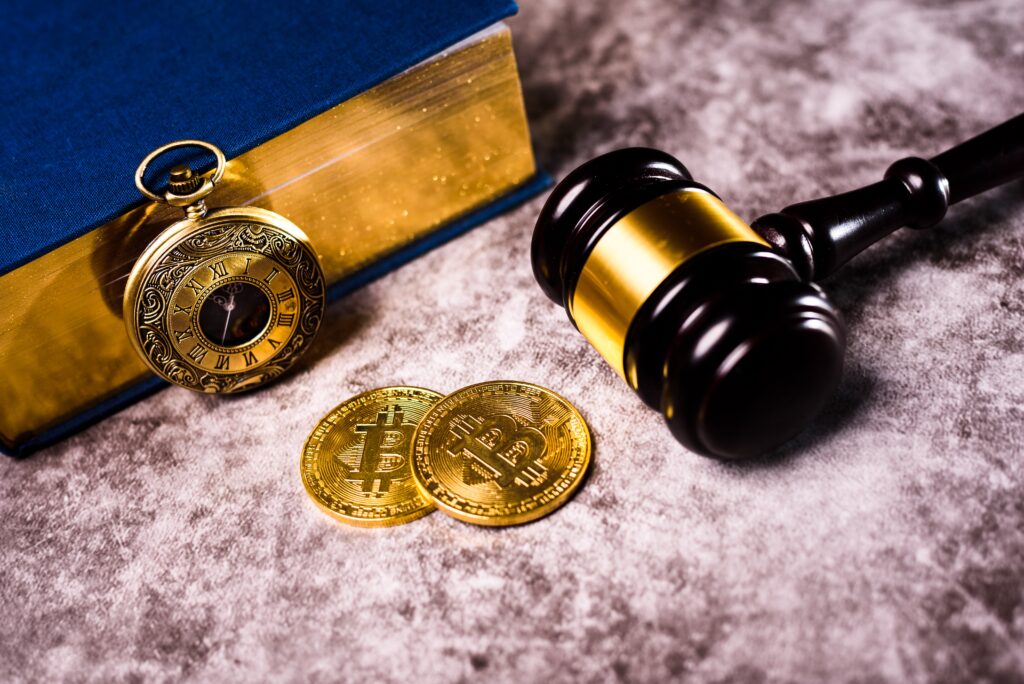The tightening of crypto regulations has left the blockchain industry in a quandary. Regulatory gaps have been identified, and regulators are now looking to pass legislation to fill those gaps and provide a broad regulatory framework for the industry. These regulations aim to ensure transparency, accountability, and consumer protection.
The US SEC has been taking enforcement actions against entities for operating digital asset exchanges without registering with the SEC or alternative trading systems without first registering as an ATS. This indicates that the SEC will continue their enforcement activities with charges being levied against those who violate existing regulations or are found to be operating outside of a regulatory framework.
With these measures being taken by Congress, it’s clear that further development of a comprehensive regulatory framework is coming aimed at protecting both consumers and businesses alike in this quickly evolving industry.
After the collapse of FTX and Terra in 2022, the cryptocurrency industry, now more than ever before, is in need of regulatory clarity. This would help reduce the risk of endogamic trading and allow financial institutions to better protect themselves against potential risks.
However, the proposals put forward by regulators must be cautious not to affect the market negatively, as many of these bills fail to do.
Crypto asset exchanges are increasingly being subjected to greater regulatory scrutiny, which could lead to a tremendous shift in how crypto assets are used. This could also affect the development of decentralized finance protocols and digital tokens under securities laws. Moreover, the increased tugging on cryptocurrencies may also cause some players in the industry to move away from using digital tokens for financial activities.
The key question becomes: just how can regulators ensure that crypto-assets do not threaten the stability of traditional financial institutions while ensuring the space continues to innovate and thrive? The answer lies in developing a set of regulations that will allow for greater transparency and investor protection in the crypto market, providing regulatory clarity for both investors and exchanges alike without harming the crypto businesses in the process.
Complex Regulatory Landscape

Cryptocurrencies have revolutionised the world of finance, introducing the concept of decentralisation, which is at the heart of blockchain technology. However, governments worldwide have taken various approaches to regulate cryptocurrencies, resulting in a complex and evolving landscape for the industry.
Some countries have embraced cryptocurrencies, recognising the potential benefits of decentralised currencies, while others have been more sceptical and have enacted strict regulations.
The Chinese government has taken a much more aggressive stance, banning crypto transactions. In 2017, the country banned initial coin offerings (ICOs), and in 2021, it banned all cryptocurrency trading and mining activities.
Opposite to China’s stance on digital currencies, Asia’s biggest financial centres, Japan, Hong Kong, and Singapore, have been particularly encouraging the crypto industry’s growth while going hard on consumer protection.
Japan, meanwhile, has taken a more favourable approach to cryptocurrencies, recognising them as legal tender in 2017. However, the country has also enacted regulations to prevent fraud and protect consumers. However, China’s stance has been lately softening, with Beijing reportedly backing Hong Kong’s plans to legalise retail crypto trading in the territory.
Amidst this, Singapore has been aiming to become a global cryptocurrency hub. It has embarked on various projects, such as Project Ubin and Project Guardian, which test blockchain applications in financial services.
However, the country is now moving ahead with its plans to tighten rules on crypto trading by retail customers, with the Monetary Authority of Singapore (MAS) proposing a suite of measures to reduce the risk of consumer harm. These measures are aimed at digital payment token service providers, and if implemented, these proposals will affect a majority of cryptocurrency players in Singapore.
The United Kingdom is another country committed to becoming a global crypto hub. The UK has been evaluating the risks and benefits that would come with allowing the crypto asset industry to grow in the country.
In Jan. 2020, the Financial Conduct Authority (FCA) implemented new crypto-focused regulations to supervise businesses operating in the sector and ensure they’re subject to the same AML and CTF regulations as firms in traditional financial markets.
While wanting to capture the benefits blockchain technology and crypto offer, much like Singapore, the UK hasn’t really been friendly toward cryptocurrencies due to their volatile and speculative nature, sending mixed signals to the industry. This can be seen in the lack of crypto firms setting operations in Singapore and the UK.
For instance: According to the UK’s financial watchdog, FCA has given the all-clear to a mere 41 out of 300 crypto firm applications seeking regulatory approval to date.
The FCA revealed that out of 265 “determined” applications, just 15% were approved and registered. According to new figures from the regulator, 74% of firms either refused or withdrew their application, while 11% were rejected, and 35 applications are yet to be determined.
This shows that regulating cryptocurrencies has significantly impacted the crypto and those dealing with them. While some countries have embraced cryptocurrencies, others have enacted strict regulations, which can make it difficult for companies to operate and can force them to move their operations to other countries.
Decentralisation Not Immune From Regulation

Over this past decade, crypto assets have become an important part of the global economy, and with that has come government scrutiny. Surely, legal certainty is essential to ensure that only legitimate transactions occur and protect crypto investors from fraudulent activity.
Clear definitions are required within the crypto ecosystem in order to create a secure environment for both short-term and long-term investors alike. Government regulation can provide legal certainty by ensuring that all parties have clear definitions of their rights and obligations within the ecosystem, thus protecting all those involved from any fraudulent activity or other risks associated with cryptocurrencies.
However, amidst this increased scrutiny, the popular Ethereum wallet MetaMask with over 21 million monthly active users, began collecting users’ IP addresses and ETH wallet addresses via its infrastructure provider Infura (the default RPC network), as notified by parent company ConsenSys to users.
While the company added new privacy features to its browser extension earlier this month that allows users to choose their own remote procedure call (RPC) network, it did warn that “any RPC will receive your IP address and Ethereum wallet to make transactions.”
Additionally, before its collapse, FTX boasted of being the “most regulated” exchange in the industry. The now-defunct exchange spent some $2 billion on “acquisitions for regulatory purposes” and used its regulatory status to lure new capital from major investors.
FTX was a centralised exchange in the decentralised world of cryptocurrencies, where no central authority controlled the network. In the context of the current regulatory landscape, decentralisation can be seen as a means of reducing the impact of tightening crypto regulations. Because no central authority controls the network, it is much more difficult for regulators to shut down or control the use of cryptocurrencies.
Not to mention, decentralisation offers a high degree of privacy and anonymity, which can be important for individuals or entities who wish to keep their financial transactions private. This can be particularly appealing in jurisdictions with strict financial regulations or where there are concerns about government surveillance.
However, it is worth noting that while decentralisation can make it more difficult for regulators to control the use of cryptocurrencies, it does not necessarily make them immune from regulation.
Regulators can still take action against individuals or entities who engage in illegal or fraudulent activities using cryptocurrencies. They may also seek to impose restrictions on the use of cryptocurrencies through other means, such as taxation or licensing requirements, as was seen with the decentralized obfuscation tool Tornado Cash which has been added to the sanctions list by the US Treasury.
One thing is clear, despite being a key feature of cryptocurrencies, decentralisation does not make cryptocurrencies immune from regulation, and regulatory frameworks will continue to evolve in response to the growth of the cryptocurrency industry.
As the industry continues to evolve, countries and crypto businesses need to find a balance between protecting consumers and preventing fraud while allowing the decentralised nature of cryptocurrencies to thrive.









